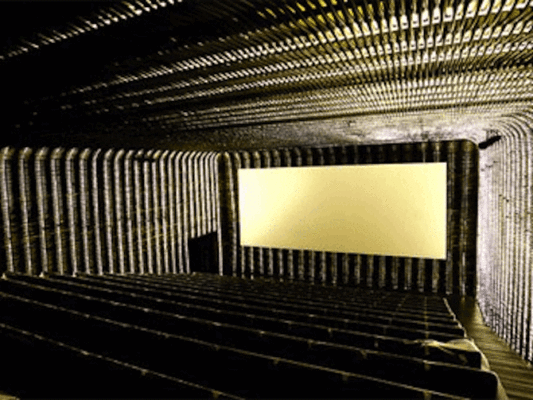Search
To search for an exact match, type the word or phrase you want in quotation marks.
A*DESK has been offering since 2002 contents about criticism and contemporary art. A*DESK has become consolidated thanks to all those who have believed in the project, all those who have followed us, debating, participating and collaborating. Many people have collaborated with A*DESK, and continue to do so. Their efforts, knowledge and belief in the project are what make it grow internationally. At A*DESK we have also generated work for over one hundred professionals in culture, from small collaborations with reviews and classes, to more prolonged and intense collaborations.
At A*DESK we believe in the need for free and universal access to culture and knowledge. We want to carry on being independent, remaining open to more ideas and opinions. If you believe in A*DESK, we need your backing to be able to continue. You can now participate in the project by supporting it. You can choose how much you want to contribute to the project.
You can decide how much you want to bring to the project.

Curating value seems to be the fundamental question. It seems that it was the main pillar of the discussion that was held at the annual IKT (International Association of Curators of Contemporary Art) encounter that was celebrated this year in Madrid from Thursday 19 until 22 April. One thing’s for sure is that those parts of the encounter that I had access to revolved around two eternal questions: what was curating and what was value. As well as a final one: how to make them converge in the same discursive thread.
The administration of value was the nucleus of the debate. Simmel was discussed, the similarities the value of monetary exchange and the abstraction of languages. As well as how evident it was that the hegemonic dynamic in the context of art today is the transference of the value from the object to the name of whoever it might be. Foucault and parrhesia were discussed. As was telling the truth, or better still, of being the one in charge of telling it. However, in the light of what we are facing, others talked of classical cynicism. Of not being able to accept the value of change, of not wanting to accept the question that is being thrown at us: either because we have no card to play in this market or because we choose not to talk this language. There were also those who didn’t make a statement and talked of common places. But once the public presentations were over, in the tête à tête,where truth slips between the words, the gestures of the cynic and of transparency talked of precariousness. And the situation of risk, that a necessary profession is in. Of the professional ploys being resorted to in order to reach the end of the month. And of all those months that go by in between jobs.
When it’s clear that the profession is one of being an intermediary in a chain transferring values, it is normal that one has to talk about the anxiety that this generates. But we are seeing many bubbles burst, and nobody wants to inhabit the next one. To those attending the last reunion of IKT it worried them, just like everybody else. And it seems clear that, even though we don’t like the economy that we participate in, it’s complicated to step out of it.

Paloma Checa-Gismero is Assistant Professor at San Diego State University and Candidate to Ph.D. in Art History, Criticism and Theory at the University of California San Diego. A historian of universal and Latin American contemporary art, she studies the encounters between local aesthetics and global standards. Recent academic publications include ‘Realism in the Work of Maria Thereza Alves’, Afterall, autumn/winter 2017, and ‘Global Contemporary Art Tourism: Engaging with Cuban Authenticity Through the Bienal de La Habana’, in Tourism Planning & Development, vol. 15, 3, 2017. Since 2014 Paloma is a member of the editorial collective of FIELD journal.
"A desk is a dangerous place from which to watch the world" (John Le Carré)